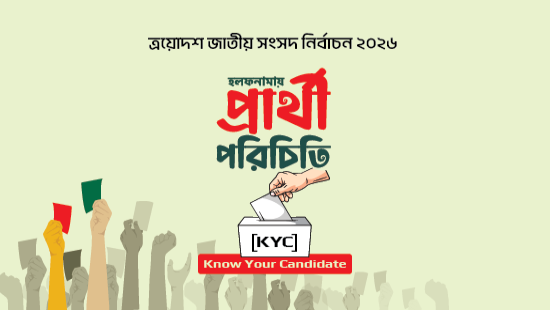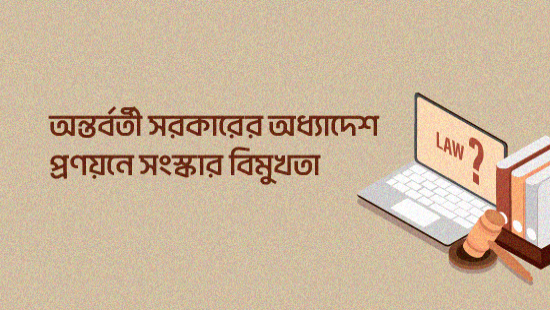Press Release
Dhaka, 29 October 2025: Transparency International Bangladesh (TIB) is deeply concerned about the Advisory Council's approval of the draft Anti-Corruption Commission Ordinance (Amendment) 2025, which ignores key strategic recommendations from the ACC Reform Commission. The organization emphasized that the new ordinance must incorporate the recommendations outlined in the Reform Commission's report to ensure that the Anti-Corruption Commission (ACC) becomes a truly independent and effective institution capable of functioning properly and restoring public trust.
In a statement today, TIB Executive Director Dr. Iftekharuzzaman said, “The draft ordinance is a somewhat improved version of the existing law, and it reflects some of the Reform Commission’s recommendations. However, it is disappointing that several strategically important recommendations have been omitted or disregarded.” He added, “To ensure transparency in the appointment process of commissioners and accountability in the performance of the Commission, the Reform Commission proposed forming a ‘Selection and Review Committee.’ The government has rejected the review portion, which would have allowed periodic review of the ACC’s performance. ACC has long been used as a tool to harass opponents and defend the ruling party, and this indicates that the government does not want to change that.
Dr. Zaman further said, “Through this ordinance, the government has only addressed a small portion of the urgent issues identified by the Reform Commission. Additional significant recommendations concerning the Commission’s institutional governance, transparency in recruitment, bureaucratic influence, internal corruption and irregularities, as well as the supportive legal and policy framework pertinent to ACC’s mandate, were anticipated to be executed through collaborative efforts between the government and ACC. However, due to the absence of visible progress, frustration has deepened. Although the drafting of this ordinance initially created some hope, in reality, it has only intensified concern and disappointment.”
He continued, “In the draft, the authority to nominate the opposition representative to the Selection Committee has been shifted unjustifiably from the Leader of the Opposition to the Speaker of Parliament—an act that serves no purpose other than to strengthen ruling party influence. The Reform Commission also suggested that the Chief Justice choose one Bangladeshi citizen who is an expert in fighting corruption and good governance to be a member of the Committee. This job has now been given to the President. The government has also removed the provision for publishing the names of shortlisted candidates, thereby rejecting an opportunity to ensure transparency in the appointment process.”
Dr. Iftekharuzzaman mentioned that, according to Recommendation No. 13 from the ACC Reform Commission report, to make the ACC more effective and innovative, it was suggested that commissioners should be chosen from people with at least 15 years of experience in areas like law, education, administration, the judiciary, law enforcement, financial institutions, accounting, auditing, or in governance and anti-corruption efforts in both government and non-government organizations. However, the draft ordinance has set this requirement at 25 years. Furthermore, the suggestion to raise the number of commissioners from three to five has been overlooked, which is unfortunate.
He emphasized that the omitted recommendations had the support of almost all political parties, and both the government and the ACC are aware of that. "Despite this, the government has arbitrarily dismissed these provisions. This opposition may stem from powerful groups and individuals within the government and even the ACC, who benefit from the Commission's current lack of effectiveness. "For a government tasked with reform, this is a disappointing, contradictory, and anti-reform precedent. The government itself formed the Reform Commission and created an opportunity for national consensus, yet it is now disregarding all these. How can the government or the ACC rationalize their undermining or suppression, particularly in areas where they have reached a consensus? Dr. Iftekharuzzaman raised this question.
Media Contact:
Mohammad Tauhidul Islam
Director, Outreach and Communication
Phone: +8801713107868
Email: tauhidul@ti-bangladesh.org







